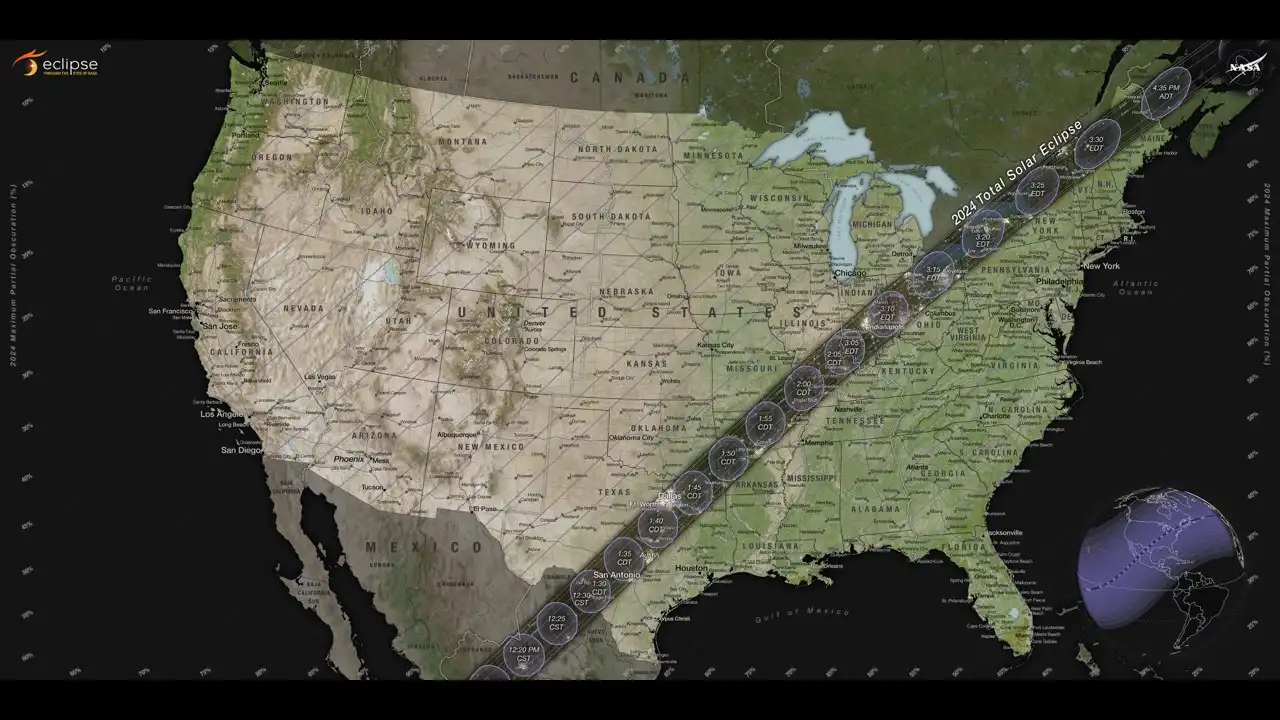Potential Effect of the 2024 Solar Eclipse on Solar Energy Production
2024 solar eclipse on April 8 will impact solar energy generation in the U.S., with grid operators preparing for potential losses.
On April 8, 2024, a rare solar eclipse will sweep across the U.S. and Canada, starting on Mexico's Pacific coast and ending in the eastern part of North America. This celestial event is expected to darken the sky completely in the path of totality for up to six minutes, raising concerns about its impact on solar energy generation.
The U.S. Energy Information Administration (EIA) predicts that solar power will account for 6% of electricity generation in the U.S. this year, a significant increase from 2017. With the growing reliance on solar energy, experts are closely monitoring the potential effects of the eclipse on power generation.
Solcast, a leading solar modeling company, anticipates that the 2024 eclipse will have a greater impact on solar generation compared to previous eclipses due to the increased solar power capacity in the country. The company's clear-sky irradiance modeling suggests that some areas could experience a loss of up to 16% of daily total clear sky irradiance during the eclipse.
Grid operators are preparing for a scenario where solar generation drops to zero during the eclipse, leading to a temporary disruption in power supply. Solcast estimates that the maximum duration of impacted generation will be over 90 minutes, with a total loss of up to six minutes. This will result in a faster "ramp rate" than usual, affecting the stability of the grid.
To mitigate the potential loss of solar energy, grid operators are exploring alternative sources of power to maintain grid stability. During the 2017 eclipse, utilities successfully managed the decrease in solar power production by relying on other sources, and similar strategies are expected to be implemented during the 2024 eclipse.
In Texas, the Electric Reliability Council of Texas (ERCOT) is closely monitoring the eclipse, as it could lead to a loss of nearly 11% of normal generation during peak production hours. ERCOT is working on forecasting models to anticipate the reduced solar power production and ensure grid reliability during the eclipse.
Looking back at the 2017 eclipse, which affected California and Georgia, utilities experienced a temporary dip in solar power production but managed to maintain grid stability without any major disruptions. As the 2024 eclipse approaches, experts are confident in the grid operators' ability to handle the fluctuations in solar generation and ensure a reliable power supply throughout the event.












Comments on Potential Effect of the 2024 Solar Eclipse on Solar Energy Production